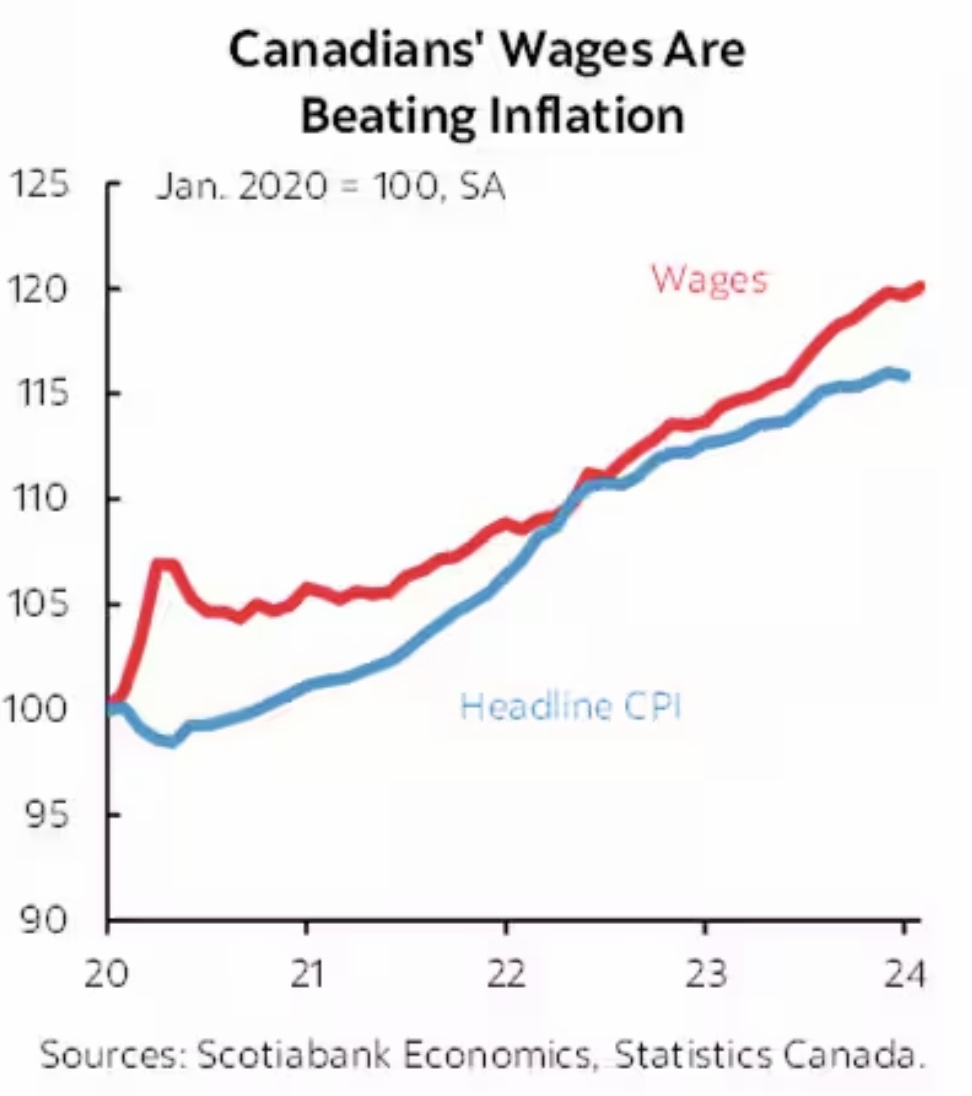Canada Job Market Report (Feb 2020): Latest Stats & Trends

Advertisement: Click here to learn how to Generate Art From Text
Canada’s employment market continues to grow despite a record population. Despite the addition of 41,000 new jobs in February, employment growth still trails population growth.
Statistics Canada has released the latest data showing that the unemployment rates in February were 5.8 percent compared to 5.7 in January.
The impact of population increase
BMO chief economist Douglas Porter said in an interview Nojoud Al mallees, of the Canadian Press. “that [the] overwhelmingly large rise in full-time jobs is quite impressive.”
“[But] it’s quite clear,”Porter, said “also that the numbers are being heavily influenced by the incredibly rapid population growth we’re seeing.”
Year-over-year, Canada’s population grew by 1,031,200 people, but employment rose by only 368,000 jobs.
The population growth in February 2024 and January 2024 was the highest in Canadian history.
The Canadian government is on course to settle (or surpass) 485,000 newcomers by 2024, and 500,000 by 2025.
The job market remains resilient
Derek Holt, Scotiabank’s Vice President and Head of Capital Markets Economics, said that while the details in the latest job market report were mixed, “they were good enough, and the job market remains resilient. “
Holt also noted that wage growth has recovered and continues to outpace inflation and productivity.
Newcomers to Canada in 2024 may find that the job market is much more relaxed than it was a year ago.
“We came into 2023 blazing hot, but as interest rates continue to increase, we saw job prospects kind of dwindle, especially over the second half of last year, and that’s bled into this year,” Conference Board of CanadaRichard Forbes, an economist, said in a recent interview with Nikitha Martens of the Daily Hive.
Related Posts
A Guide to Land Your Dream Job!| A Guide to Land Your Dream Job!
Employment Services Help Newcomers Work In Canada
Uncertainty about inflation and interest rates
Forbes also noted that employers are reluctant in investing in new workers due to the uncertainty surrounding the direction of interest rate and inflation. Forbes said that the rate of job vacancies has also decreased, which means there are fewer positions available for all job seekers.
While the Bank of Canada’sAlthough the increase in interest rates (which remain at 5%) and inflation have slowed down labour markets, a strong population expansion appears to have partially offset the impact.
Looking ahead to the remainder of 2024, BMO’s Porter observed that with more people searching for work when the economy is slowing, job seekers may be more willing to take on less-than-ideal work.
“As you add people to the labour force, and it gets tougher and tougher to find the kind of job you want, you might be more willing to take a job that’s available,”He said. “So we do get employment gains, it’s just there simply aren’t as many new jobs as there are new people.”

Economists are aware that Statistics CanadaRecent reports focus more on the rate of employment to show if job gains keep pace with population growth.
The Canadian job market has been affected by the aging of the population
According to Statistics Canada, the employment rate (representing the proportion of Canadians aged 15 and older who are employed) dropped in February for the fifth consecutive month.
This is the longest decline since the six-month period ending April 2009.
BMO’s Porter told the Canadian Press that Canada’s aging population is also affecting the fall in the employment rate.
“At the same time as we have this very rapid population growth and immigration growth, we’ve also got, of course, a lot of people who are hitting the age 65 every single month,”He said.
Will the latest Canada Job Report impact the direction in which interest rates fall, which most economists think will start to happen later this year?
Bank of Canada Governor Tiff Macklem isn’t tipping his hand.
“With inflation still close to 3 percent and underlying inflationary pressures persisting, governing council assesses that we need to give higher rates more time to do their work,”He said at a news conference held recently.
| PROVINCE | m/m |
|---|---|
| Ontario | +6.7k |
| Alberta | +17.4k |
| Newfoundland & Labrador | -1.8k |
| Manitoba | -5.3k |
| Nova Scotia | +6.3k |
| New Brunswick | +0.5k |
| Prince Edward Island | 0.0k |
| British Columbia | +5.9k |
| Saskatchewan | +2.3k |
| Quebec | +8.8k |
| EMPLOYMENT TYPE | m/m |
| Full Time | +70.6k |
| Part Time | -29.9k |
| Public Sector | +18.8k |
| Private Sector | -16.4k |
| Self-employed | +38.3k |
Meanwhile, economists Jean-François Perrault and René Lalonde of Scotiabank, in their most recent economic forecast for Canada, predict that:
- Canada and the US will not experience recessions. US growth in 2024 (2,3 percent) is expected double Canadian growth (1%)
- Inflation is a major challenge for central banks. We continue to anticipate a sustained return of inflation targets in 2025. The inflation risks are higher than expected due to the economic momentum that has been observed so far this season, strong wage growth, and supply chain risk.
- We remain comfortable with our views that the Bank of Canada will cut in September…cuts of 75 basis points are forecast for Canada this year
Scotiabank’s Holt reiterated that Canada needs higher immigration in an aging workforce amid low fertility rates.
“I’ve long supported higher immigration to be phased in over time and advanced strong proposals to do so two decades ago. Canadians are supportive of immigration versus darker discussions elsewhere in the world and I have no time for anyone who is going to take a darker approach to the debate.”
Holt has warned that the pace of population increase is not sustainable. “too much, too quickly, and there was zero planning or preparation done in advance of this. It’s as if it was all done on a total lark. The Federal Government is in total scramble mode as a result and it’s dragging provinces and municipalities along with it.”
Steve Tustin is a contributing editor for Prepare for Canada and the editor of Rentals for Newcomers. He was the former managing director of Storeys.com and a former senior editor at both the Globe and Mail and the Toronto Star.
*Prepare for Canada used no AI-generated content in the writing of this story, and all sources are cited and credited where possible.
© Prepare for Canada 2023

‘ Credit:
Original content by www.prepareforcanada.com – “Canada Job Market Report: Latest Stats and Trends (Feb 2024)”
Read the full article here https://www.prepareforcanada.com/working-in-canada/canada-job-market/






